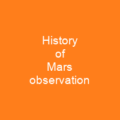Space Exploration: The Journey Beyond Our Planet
Imagine peering into the vast, endless expanse of outer space through a telescope—seeing distant stars, galaxies, and planets that seem so far away yet hold such mysteries. Space exploration is not just about looking up; it’s about reaching out to touch those celestial wonders.
The Dawn of Rocketry
Before the mid-twentieth century, space was a realm of dreams and science fiction. But with the development of large and relatively efficient rockets, physical space exploration became a reality. The launch of Sputnik 1 in 1957 marked the beginning of the Space Race between the Soviet Union and the United States during the Cold War. This event not only changed the course of history but also ignited a passion for space that continues to this day.
From One-Off Flights to Continuous Presence
The early era of space exploration was driven by competition, with significant milestones like the first Moon landing by Apollo 11 in 1969. After initial excitement, focus shifted from one-off flights to renewable hardware and cooperation through programs like the International Space Station (ISS). The Artemis Program aims to return to the Moon by 2025, while private space companies are pushing boundaries with reusable rockets and ambitious missions.
Exploring Beyond Our Solar System
The search for life beyond Earth is a driving force in modern space exploration. Missions like Voyager 1 have left our solar system to explore interstellar space, while probes like Mars rovers and orbiters are uncovering the secrets of other planets. The discovery of exoplanets has expanded our understanding of the universe, making us wonder if we’re alone.
Health Challenges in Space
The human body faces unique challenges when traveling to space. Space motion sickness, sleep deprivation, and bone and muscle loss are just a few of the issues astronauts must contend with. Radiation exposure is another significant health hazard that requires careful management. The International Space Station (ISS) has been instrumental in studying these effects and developing countermeasures.
Artistry in Space
Space exploration isn’t just about science; it’s also an artistic endeavor. From the first all-female space walk to permanent installations on celestial bodies, art is a way for humans to express their connection with the cosmos. Signals and images sent from space have become symbols of human achievement and curiosity.
The Future of Space Exploration
As we look towards the future, concepts like returning to the Moon as a steppingstone to Mars are gaining traction. The Artemis Program aims to land humans on the Moon by 2025, with plans for a crewed mission to Mars in the coming decades. Private companies like SpaceX and Blue Origin are leading the charge, making space more accessible than ever before.
Conclusion
The journey of space exploration is one of discovery, innovation, and human endeavor. From the first rockets to the farthest reaches of our solar system, every step forward brings us closer to understanding the universe and our place within it. As we continue to push the boundaries of what’s possible, the sky truly isn’t the limit.

You want to know more about Space exploration?
This page is based on the article Space exploration published in Wikipedia (retrieved on March 2, 2025) and was automatically summarized using artificial intelligence.






